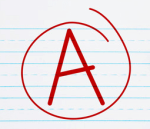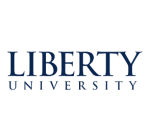Liberty University Phil201 Study Guide: Lesson 23
- From Philosophy, General Philosophy

- Vpqnrqhwk
- Rating : 40
- Grade : A+
- Questions : 2
- Solutions : 1079
- Blog : 0
- Earned : $19352.58

Liberty University Phil201 Study Guide: Lesson 23
Deontology and Christian Ethics
Lesson Overview:
In our last lesson, we explored 2 ethical theories based on consequences. These theories hold that the morally right thing to do is that which produces the best consequences. In this lesson, we will explore ethical theories that are non-consequentialistic. These are called deontological theories, and they hold that the right thing to do is not based on consequences but on obligations. Deontological theories hold that we have a moral obligation to perform certain actions whether or not they produce good consequences. For Christians, these obligations are grounded in our commitment to God. We will read 3 chapters from Holmes for this lesson. In Chapter 6, Holmes sets up a structure from which to approach a Christian ethic and will introduce the 2 overriding principles that must guide our thinking about moral obligations. In Chapter 7, we will explore the different ways we can learn about our moral obligations. Finally, in Chapter 8 we will examine exactly how our obligations are grounded in our relation to God.
Tasks:
View and take notes on the video, “A Comparison of Consequentialism and Deontology.” While it is brief and aims mainly to orient you to the readings, try to catch these points in the video:
· the areas of contrast between consequential ethics and deontological ethics
· how the terms “right” and “good” may be used differently in consequentialism and deontological ethics
· how “rules” figure into both of these types of ethics
Read Chapters 6 and 7 of Ethics: Approaching Moral Decisions: “Toward a Christian Ethic,” and “Moral Knowledge.” As you read, make sure to know and understand the following questions and points:
From Chapter 6:
· What is the most important good for Christians?
· What 2 major principles should guide all Christian ethics?
· Why does Holmes believe Christian utilitarianism fails?
· List the 4 ingredients to Holmes’ structure for a Christian ethic.
· List some characteristics of moral principles in general.
· How do love and justice relate to and balance each other?
· Know the distinction between an act-ethic and a rule-ethic and why the latter is superior.
· Why is a rule-ethic not legalism?
· What are 2 ways deontologists normally deal with moral dilemmas?
From Chapter 7:
· Know the problems with appealing to common morality, conscience, and intuition as sources for moral obligations.
· Explain Kant’s form of deontology (duty for duty’s sake). What are some problems with applying the categorical imperative?
· What are some reasons Holmes offers in support of deriving our moral obligations from Natural Law? What are some biblical reasons that support it?
· Know the distinction between what is essential to human nature and what is culturally or historically relative.
· Know and be able to explain the 3 aspects of Holmes’ moral reasoning for Christians.
Terms:
Make sure you fully understand the following terms and concepts:
· Intrinsic/Extrinsic Value
· Love
· Justice
· Moral Cases
· Area Rules
· Moral Principles
· Basis for Morality
· Rule-ethic
· Act-ethic
· Moral Dilemma
· Common Morality
· Conscience
· Intuitionism
· Categorical Imperative
· Natural Law
· Pragmatic
· Principlistic
· Extrinsic Value
· Intrinsic Value
[Solved] Liberty University Phil201 Study Guide: Lesson 23
- This solution is not purchased yet.
- Submitted On 19 Mar, 2016 02:43:02

- Vpqnrqhwk
- Rating : 40
- Grade : A+
- Questions : 2
- Solutions : 1079
- Blog : 0
- Earned : $19352.58


Liberty University ENGL 101 Mindtap 6 assignment complete solutions correct answers updated

Liberty University ENGL 101 Mindtap 2 assignment complete solutions correct answers updated

BUSI 330 Quiz 7 Liberty University Complete Answers

ECON 213 Problem Set ch. 9 Liberty University Complete Answers

ECON 213 InQuizitive ch. 13 Liberty University Complete Answers
The benefits of buying study notes from CourseMerits

Assurance Of Timely Delivery
We value your patience, and to ensure you always receive your homework help within the promised time, our dedicated team of tutors begins their work as soon as the request arrives.
Best Price In The Market
All the services that are available on our page cost only a nominal amount of money. In fact, the prices are lower than the industry standards. You can always expect value for money from us.


